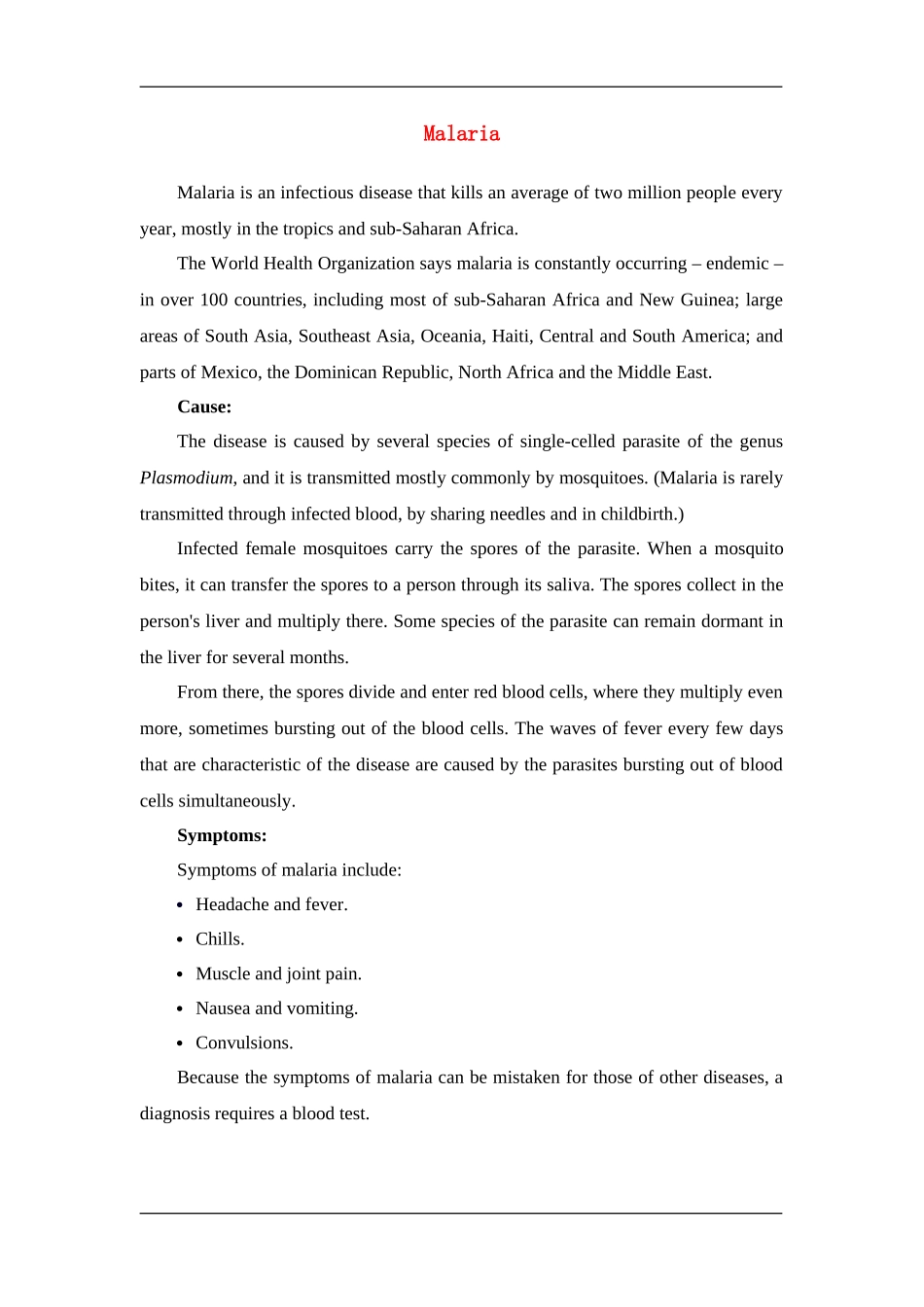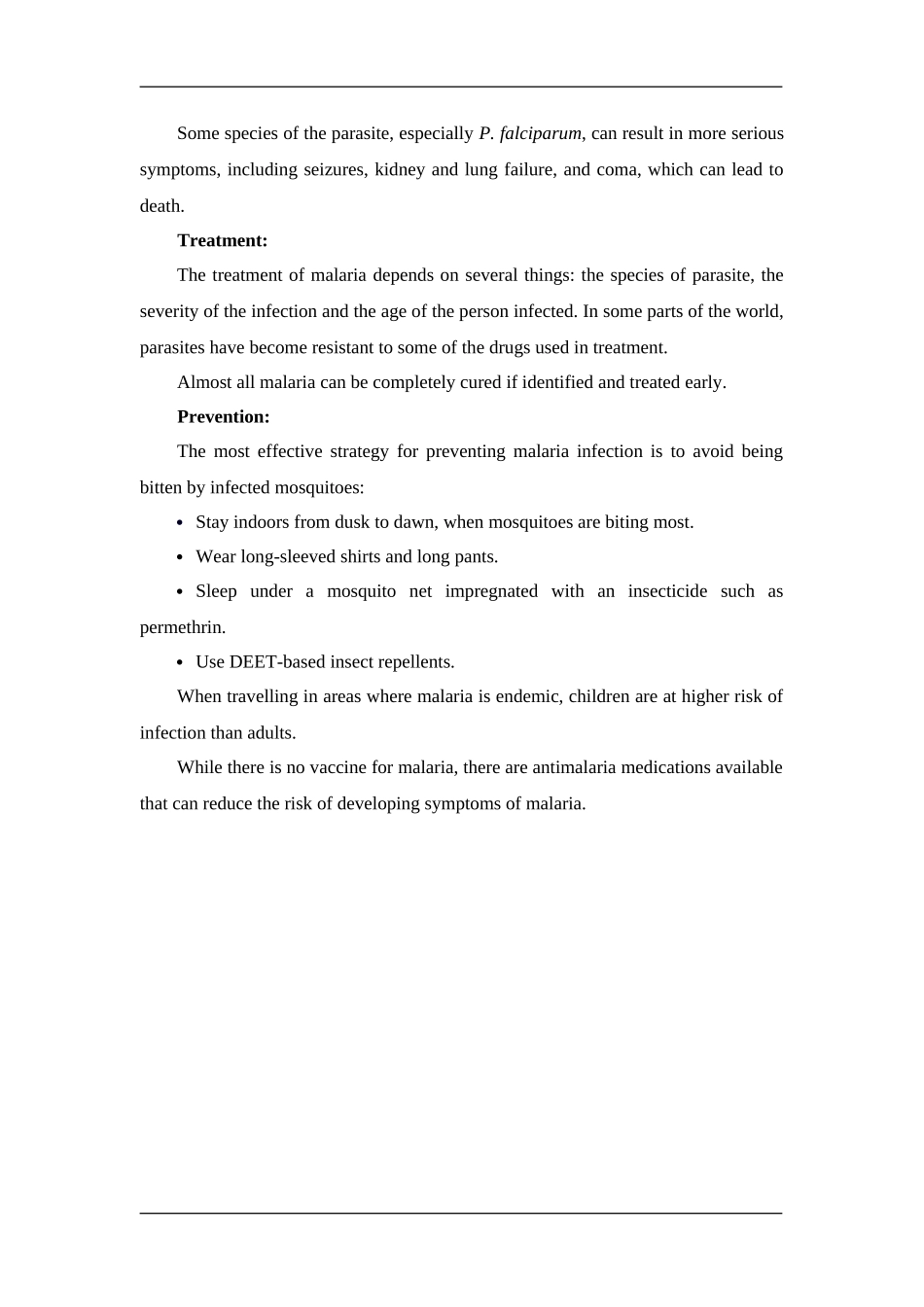MalariaMalaria is an infectious disease that kills an average of two million people every year, mostly in the tropics and sub-Saharan Africa. The World Health Organization says malaria is constantly occurring – endemic – in over 100 countries, including most of sub-Saharan Africa and New Guinea; large areas of South Asia, Southeast Asia, Oceania, Haiti, Central and South America; and parts of Mexico, the Dominican Republic, North Africa and the Middle East. Cause: The disease is caused by several species of single-celled parasite of the genus Plasmodium, and it is transmitted mostly commonly by mosquitoes. (Malaria is rarely transmitted through infected blood, by sharing needles and in childbirth.) Infected female mosquitoes carry the spores of the parasite. When a mosquito bites, it can transfer the spores to a person through its saliva. The spores collect in the person's liver and multiply there. Some species of the parasite can remain dormant in the liver for several months. From there, the spores divide and enter red blood cells, where they multiply even more, sometimes bursting out of the blood cells. The waves of fever every few days that are characteristic of the disease are caused by the parasites bursting out of blood cells simultaneously. Symptoms: Symptoms of malaria include: Headache and fever. Chills. Muscle and joint pain. Nausea and vomiting. Convulsions. Because the symptoms of malaria can be mistaken for those of other diseases, a diagnosis requires a blood test. Some species of the parasite, especially P. falciparum, can result in more serious symptoms, including seizures, kidney and lung failure, and coma, which can lead to death. Treatment: The treatment of malaria depends on several things: the species of parasite, the severity of the infection and the age of the person infected. In some parts of the world, parasites have become resistant to some of the drugs used in treatment. Almost all malaria can be completely cured if identified and treated early.Prevention: The most effective strategy for preventing malaria infection is to avoid being bitten by infected mosquitoes: Stay indoors from dusk to dawn, when mosquitoes are biting most. Wear long-sleeved shirts and long pants. Sleep under a mosquito net impregnated with an insecticide such as permethrin. Use DEET-based insect repellents. When travelling in areas where malaria is endemic, children are at higher risk of infection than adults. While there is no vaccine for malaria, there are antimalaria medications available that can reduce the risk of developing symptoms of malaria.

